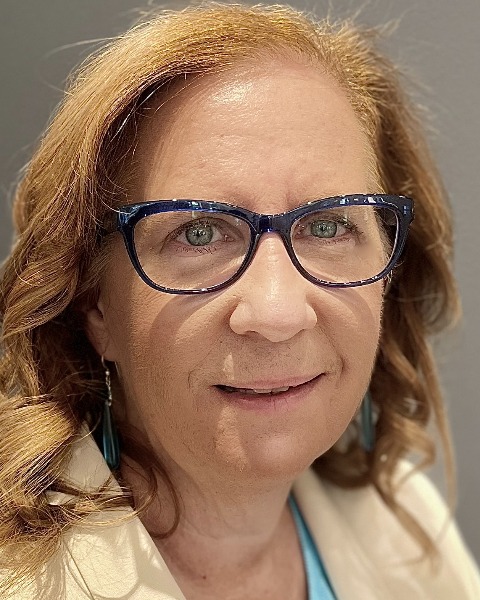International and Cross Cultural Evaluation
Mapping and Critical Analysis of Localization Efforts, a Shared and Fraught Story Across Continents
-
KS
Karla Giuliano Sarr, AEA member, 15+ years in international development
Senior MEL Specialist
EnCompass LLC, United States -
KS
Karla Giuliano Sarr, AEA member, 15+ years in international development
Senior MEL Specialist
EnCompass LLC, United States -

Kimberly Mahling, Over 30 years in international research, evaluation and development
Chief of Party, USAID Monitoring, Evaluation and Learning Activity in Senegal
EnCompass LLC, United States -
PG
Pragati Godbole, 15+ years experience
Senior MEL Specialist
EnCompass LLC, United States
Author(s)
Chair(s)
Author(s)
Location: Room 201
Abstract Information: This panel addresses and problematizes localization within evaluation and measurement storytelling to share lessons learned and continue to improve practice. After all, the story of “localization” is as hackneyed as a Hollywood/Bollywood “boy-meets-girl” plot. From localizing the Millennium Development Goals, to Obama administration’s “Local Solutions” storyline to Trump administration’s “Journey to Self-Reliance” to the multi-stakeholder initiative to support local-level implementation of the SDGs, and academic debates of the global, local and “glocal,” the localization story is not new. The panel begins by framing the renewed emphasis on localization in evaluation from both historical and theoretical perspectives, emphasizing decolonization. We then apply these lenses to examine current examples from three different evaluation and measurement projects funded by two different US Government agencies. The panel concludes with recommendations that apply a pragmatic approach to centering storyholders and telling more authentic and representative stories while pushing boundaries of existing paradigms and constraints.
The first case explores how, within a government-funded international MEL support contract in Senegal, our team conducted two localization studies. The first study focused on mapping local organizations across multiple sectors while the second focused specifically on providers of monitoring, evaluation and learning (MEL) services. Both studies shared a common purpose, to identify organizations and strategies to increase the donor’s direct funding to local organizations. They also used similar mixed-methods methodologies. The first study produced a mapping of local organizations and a roadmap to increase funding to organizations specific to the MEL field. The second study, in particular, provides insights into the strengths and limitations of storyholders’ agency in collaborating with the international development evaluation apparatus. It also provides insights into learning power dynamics.
The second case explores a different US Government agency contracted our evaluation team to undertake a 3-phased evaluation of one of their funding mechanisms. The mechanism funds a wide-ranging global suite of programs focused on democratic advancement by strengthening democratic institutions, protecting and expanding fundamental freedoms, and strengthening political rights. Insights from this case recognize the relevance of local experiences to stakeholders while emphasizing the various missing elements that surfaced during this process central to localization.
Finally, the panel will bring to light stories of practice and challenges related to developing and adapting measurement tools to local contexts that assess social emotional learning and soft skills competencies within the international education sector. In the past several years, emphasis and understanding of the importance of these skills alongside literacy and numeracy have grown. Similarly, the extent of resources that exist to help implementers further incorporate SEL/SS components across the learning continuum has increased. Yet, learning among practitioners, academic institutions and donors is not always documented and shared. The Localization Case Study initiative is part of a larger effort to bring light and greater cohesion to social emotional learning and soft skills measurement efforts through a Taskforce made up of over 120 members across the globe. A US-government agency and international non-governmental organization come together to fund and offer technical direction to the Taskforce.
Relevance Statement: As indicated within the abstract information, this panel brings together diverse efforts across international development projects to critically investigate and address localization. The US government is currently emphasizing “localization,” but going beyond tokenism to arrive at authentic, empowered and equitable local ownership of stories is a major concern. It is also necessary to recognize the imperial roots of the international development field and the service that the MEL sector has provided and continues to provide to neo-imperialist efforts. This panel seeks to investigate and problematize these efforts using a decolonizing lens inspired by the work of Linda Tuhawai Smith and others. At the same time, the panel acknowledges the important role that evaluation can offer to seeking to seek out and amplify authentic and diverse stories and provide space for diverse voices. The panelists hope the session will inspire frank discussion among attendees and sharing of other related experiences and questions. The presenters hope to learn as much from the discussion as they are able to offer attendees through honest sharing and reflection of experiences.
Presentations:
-
5:00 PM - 6:00 PM ETA Story of Two Localization Landscape Analyses
Presenter: Kimberly Mahling, Over 30 years in international research, evaluation and development – EnCompass LLC
-
5:00 PM - 6:00 PM ETGaps in Democracy and Governance Local Programming Across 7 Countries
Presenter: Pragati Godbole, 15+ years experience – EnCompass LLC
-
5:00 PM - 6:00 PM ETLocalization Case Studies - Promising Practice and Lessons Learned
Presenter: Karla Giuliano Sarr, AEA member, 15+ years in international development – EnCompass LLC
